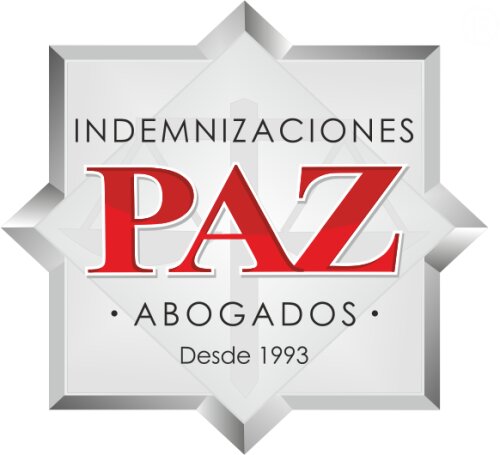Best Environmental Law & Compliance Lawyers in Pasto
Share your needs with us, get contacted by law firms.
Free. Takes 2 min.
List of the best lawyers in Pasto, Colombia
About Environment Law in Pasto, Colombia
Environmental law in Pasto, Colombia, is a broad body of regulations, standards, and policies dedicated to protecting the local environment. This includes water resources, forests, air quality, soil, biodiversity, and the urban environment. Pasto, situated in the department of Nariño, is surrounded by sensitive ecosystems such as the Galeras Volcano and various rivers. The city and its surroundings have unique environmental challenges linked to urban growth, agriculture, mining, and waste management. Legal frameworks at the national and municipal levels aim to ensure sustainable development while preserving natural resources for current and future generations.
Why You May Need a Lawyer
There are many situations in which individuals, communities, or businesses in Pasto may require a lawyer experienced in environmental matters. Some common examples include:
- Disputes over land use, zoning, or property development projects
- Claims or defense against contamination of water, soil, or air
- Issues related to deforestation or illegal logging
- Complaints regarding noise or air pollution from neighboring properties or industries
- Legal advice related to environmental sanctions imposed by local or national authorities
- Obtaining environmental permits or licenses for construction, agriculture, or industry
- Representation in administrative processes before governmental agencies
- Seeking damages or compensation for environmental harm to personal or communal property
- Participation in public hearings or consultations about local development projects
- Guidance on compliance with environmental norms in business operations
Given the complexity and evolving nature of environmental laws, consulting an experienced attorney can help avoid costly mistakes and ensure your rights and interests are protected.
Local Laws Overview
Environmental policy and enforcement in Pasto are governed by a combination of national, departmental, and municipal regulations. Colombia's Constitution enshrines the right to a healthy environment, and the Law 99 of 1993 establishes the National Environmental System (SINA), creating guiding principles and regulatory bodies.
Locally, the Autoridad Ambiental de Nariño (Corponariño) oversees most environmental issues, implementing national policies while addressing regional needs. The Council of Pasto passes ordinances dealing with urban planning, solid waste management, and local water resources.
Key aspects of environmental law in Pasto include:
- Environmental licensing and permits for construction, mining, and industrial activities
- Protection of water sources such as the Río Pasto and high-altitude wetlands (paramos)
- Regulations against illegal hunting, fishing, deforestation, and wildlife trafficking
- Strict controls for urban waste treatment and hazardous waste disposal
- Noisy or polluting establishments are subject to inspection and sanctions
- Active citizen participation in public hearings and environmental decision-making
- Special protections for indigenous territories and areas of environmental importance
Frequently Asked Questions
What should I do if my property is affected by pollution from a neighbor or company?
You can file a formal complaint with Corponariño or the local environmental authority. An attorney can help document the issue and represent you during the administrative or legal process.
Is an environmental permit required to start a business in Pasto?
Many commercial and industrial activities, such as restaurants, auto shops, or factories, require an environmental permit or compliance certificate. Requirements depend on the type and scale of activity.
What are the main environmental authorities in Pasto?
Corponariño is the main regional environmental authority. The municipal government also plays a role, and the Ministerio de Ambiente y Desarrollo Sostenible is responsible at the national level.
Can individuals participate in decisions about local development or infrastructure projects?
Yes, Colombian law guarantees citizens the right to participate in public hearings and consultations on projects that may affect the environment.
What are the penalties for illegal dumping of garbage or hazardous waste?
Penalties range from fines to closure of establishments. Repeat or severe offenders may face criminal charges.
How is the protection of water sources enforced in Pasto?
Strict regulations govern the use and conservation of rivers, springs, and wetlands. Violators may be sanctioned, and authorities monitor water quality and usage.
Can I obtain compensation for environmental damage to my land?
It is possible to claim compensation, but you typically need evidence of harm and a legal process through administrative, civil, or even criminal courts.
Is deforestation allowed for agricultural purposes?
Deforestation is strictly regulated. Permits are sometimes granted for specific activities, but unauthorized clearing can result in heavy penalties.
How are protected areas managed in and around Pasto?
Protected areas are managed by Corponariño in coordination with national and sometimes municipal authorities. Activities inside these areas are tightly controlled.
What should I do if I discover illegal hunting or wildlife trafficking?
Report any incidents to Corponariño, local police, or environmental authorities immediately. These activities are criminal offenses in Colombia.
Additional Resources
If you need more information or wish to initiate a legal or administrative process regarding environmental matters in Pasto, consider contacting these organizations:
- Corponariño - Regional environmental authority responsible for permits, sanctions, and environmental management in Nariño.
- Ministerio de Ambiente y Desarrollo Sostenible - National government body that sets policies and regulations for environmental protection.
- Alcaldía de Pasto - The municipal government office, especially its environment and urban planning departments.
- Policía Nacional - Policía Ambiental - Law enforcement division specialized in environmental protection and wildlife crimes.
- Defensoria del Pueblo - Public advocate for human rights, including environmental rights.
- Local universities and NGOs - Some offer free legal clinics or advice on environmental matters.
Next Steps
If you believe you need legal assistance regarding environmental issues in Pasto, Colombia, follow these practical steps:
- Gather all relevant documents, photographs, and other evidence relating to your case or concern.
- Contact a qualified lawyer who specializes in environmental law. Verify their credentials and experience in local matters.
- Reach out to the appropriate local authority, such as Corponariño or the municipality, to start the administrative processes when applicable.
- If urgency is required (such as ongoing pollution or environmental harm), file a formal complaint and request immediate intervention from authorities.
- Document every stage of your communications and proceedings, as this may be important for any legal process.
- Consider alternative dispute resolution or mediation if recommended by your attorney.
Understanding and navigating environmental law can be complex. Seeking professional legal guidance will help you protect your rights and contribute to the preservation of Pasto’s unique environment.
Lawzana helps you find the best lawyers and law firms in Pasto through a curated and pre-screened list of qualified legal professionals. Our platform offers rankings and detailed profiles of attorneys and law firms, allowing you to compare based on practice areas, including Environmental Law & Compliance, experience, and client feedback.
Each profile includes a description of the firm's areas of practice, client reviews, team members and partners, year of establishment, spoken languages, office locations, contact information, social media presence, and any published articles or resources. Most firms on our platform speak English and are experienced in both local and international legal matters.
Get a quote from top-rated law firms in Pasto, Colombia — quickly, securely, and without unnecessary hassle.
Disclaimer:
The information provided on this page is for general informational purposes only and does not constitute legal advice. While we strive to ensure the accuracy and relevance of the content, legal information may change over time, and interpretations of the law can vary. You should always consult with a qualified legal professional for advice specific to your situation.
We disclaim all liability for actions taken or not taken based on the content of this page. If you believe any information is incorrect or outdated, please contact us, and we will review and update it where appropriate.









